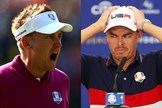Who are the best (and worst) Ryder Cup captain’s picks of all time?
Last updated:
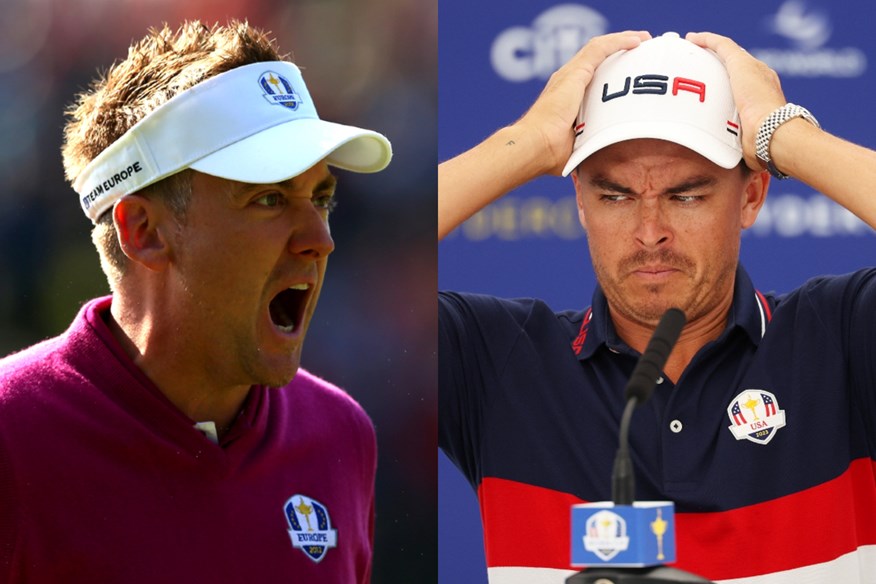
There’s an awful lot of fuss made about who will get that 12th and final wildcard slot on each Ryder Cup team. But when it comes to the tournament itself, does it really make much difference? Here’s what the numbers say…
Every time the Ryder Cup rolls around, debate around the captain’s picks is fierce. Most are pretty obvious by the time they are announced, but the final one or two spots are always hotly contested.
It is often a case of two players vying for one spot, with huge emphasis placed on the importance of the decision. But is it all blown a little out of proportion? How valuable has the 12th man actually been in this contest?
With the 12 automatic qualifiers confirmed, attention now turns to Keegan Bradley’s choices coming on Wednesday and Luke Donald’s a few days later. So we decided to dive into the numbers to see how much it actually matters.
Before we do, though, let’s have a look at what recent history tells us with a quick rundown of the last five Ryder Cups…
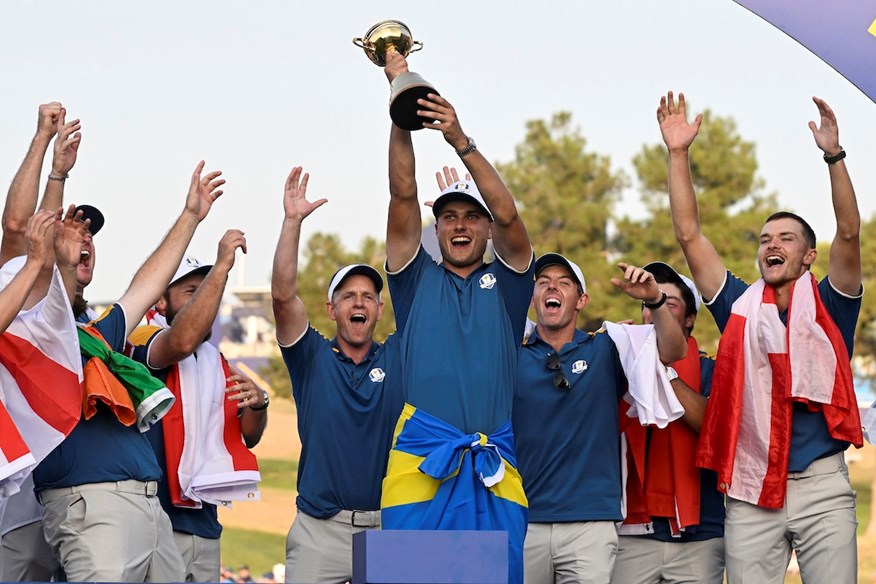
2023
European captain Luke Donald opted to put his faith in Ludvig Aberg at Marco Simone Country Club, after the Swede hit the ground running in the professional ranks. Although yet to play in a major, Aberg was handed a Ryder Cup debut at the expense of Adrian Meronk, despite being well down the order in the two qualification points lists.
Aberg combined with Viktor Hovland to devastating effect, building on an opening-day win with an incredible 9&7 victory over Scottie Scheffler and Brooks Koepka in the Friday morning foursomes.
Although he lost his next two matches to finish with a 2-2-0 record, it was all worth it as Europe wrestled the cup back.
It was slightly more controversial from the visiting captain, Zach Johnson, who picked two players outside of the top 12 in the qualification standings. Rickie Fowler (13th) and Justin Thomas (15th) got the call over Cameron Young (9th) and Keegan Bradley (11th). It didn’t work out, with Fowler going 0-2-0 and JT finishing with a 1-2-1 record.
2021
Believe it or not, there was a time when Scottie Scheffler was the last name on the US team sheet. At Whistling Straits, the Americans completed a rampant 19-9 win on the banks of Lake Michigan and Scheffler – who, at this point, had only won on the Korn Ferry Tour – justified his selection by going 2-1-0 over the three days.
Ian Poulter was well outside the automatic qualification spots for Team Europe but was picked by Padraig Harrington, who was hoping The Postman’s experience and Ryder Cup nous would help inspire a momentous victory.
It wasn’t to be. Poulter was unable to recapture his previous Ryder Cup heroics and went 1-2-0.
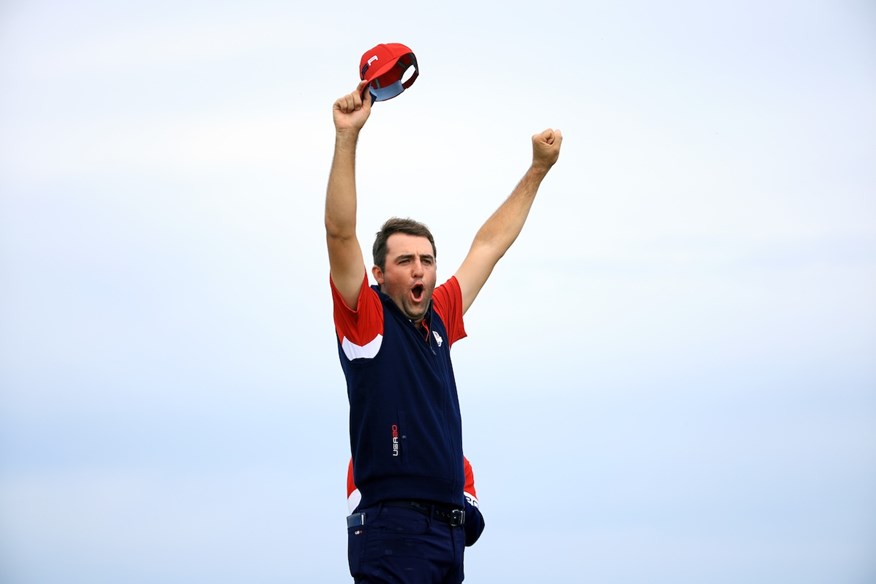
2018
Henrik Stenson was the most contentious of Thomas Bjorn’s European picks ahead of the matches at Le Golf National. However, the Swede proved his doubters wrong by going 3-0-0 in the French capital.
In fact, Bjorn’s four picks – Ian Poulter, Paul Casey, and Sergio Garcia were the others – combined for 9.5 points from the 14 available to them.
In contrast, Jim Furyk’s picks backfired. Bryson DeChambeau (0-3-0), Phil Mickelson (0-2-0), and Tiger Woods (0-4-0) were the next three players in the qualification standings, but contributed nothing.
The lowest-ranked pick, though, was Tony Finau. Despite finishing 15th in qualifying, he got the nod over Xander Schauffele, Matt Kuchar, and Kevin Kisner and went 2-1-0 to add a couple of points to his team’s cause in the 17.5-10.5 drubbing.
2016
At Hazeltine, Davis Love III was out for revenge after overseeing the US team that slipped to defeat in the Miracle at Medinah four years prior.
With four picks, Love III added JB Holmes, Rickie Fowler, Matt Kuchar, and Ryan Moore, who was the surprise inclusion.
America romped to a 17-11 victory to reclaim the cup and Moore justified his selection with a 2-1-0 record.
European captain Darren Clarke had three picks and used them on Thomas Pieters, Martin Kaymer, and Lee Westwood. The likes of Soren Kjeldsen and Tyrrell Hatton could count themselves unlucky to miss out to Westwood, but the veteran Englishman got the nod once again.
Safe to say the 12th man didn’t deliver this time around, as Westwood went 0-3-0 – including a Sunday singles defeat to Moore – in a disastrous all-round performance for Team Europe.
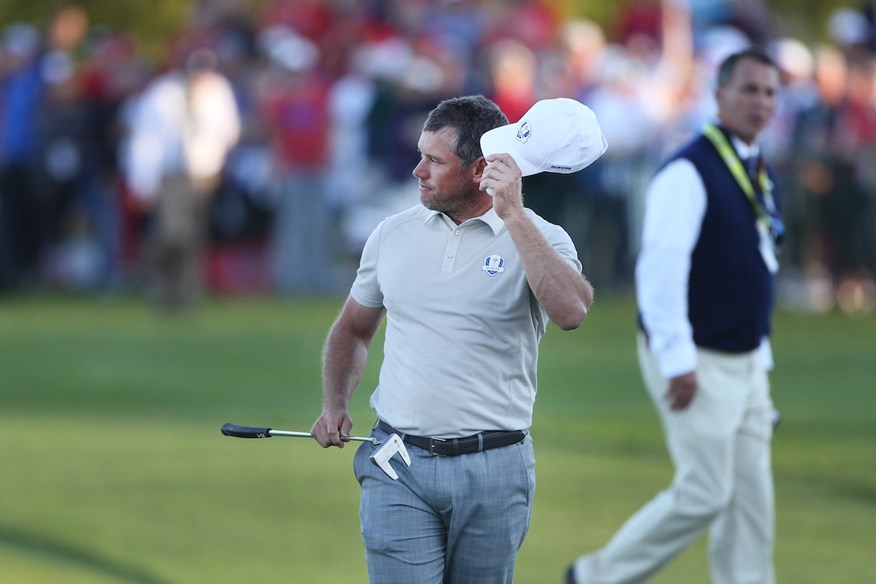
2014
Paul McGinley was meticulous in his planning ahead of the Gleneagles showdown as Europe headed to Scotland looking to make it three wins in a row.
The Irishman picked Ian Poulter, Stephen Gallacher, and Lee Westwood, all three of whom had question marks over their selection due to either a lack of form or experience.
And the question marks were, it turned out, justified. Europe won the Samuel Ryder trophy back fairly comfortably, but Gallacher (0-2-0), Poulter (0-1-2), and Westwood (2-2-0) combined for just three points from nine matches.
On the American side, captain Tom Watson selected Keegan Bradley, Hunter Mahan, and Webb Simpson – who, somewhat controversially, phoned his skipper to successfully argue his case.
In a losing cause, the choice of Simpson backfired. The 2012 US Open champion played just twice and added only a half point to his team’s tally.
So how has the 12th man performed at each Ryder Cup?
Right, let’s take a look at the numbers, then. We’ve gone back to 1989 for this experiment, as that’s when both teams started utilizing the captain’s pick option.
Team Europe
Here is how the lowest-ranked player in each Ryder Cup qualification process has performed from 1989 to the present day.
From 2006, separate World and European points lists were introduced. In these instances, we have added the ranking positions together and the highest number is the 12th man.
| RYDER CUP | 12TH MAN | QUALIFYING RANKING | W-L-H | POINTS | PERCENTAGE OF POINTS EARNED | FINAL TEAM SCORE | PERCENTAGE OF TEAM SCORE |
| 1989 | Howard Clark | N/A | 2-2-0 | 2 | 50% | 14 | 14% |
| 1991 | Mark James | 22 | 2-3-0 | 2 | 40% | 13.5 | 15% |
| 1993 | Seve Ballesteros | 38 | 2-2-0 | 2 | 50% | 13 | 15% |
| 1995 | Ian Woosnam | 13 | 1-1-1 | 1.5 | 50% | 14.5 | 10% |
| 1997 | Jesper Parnevik | N/A | 1-1-2 | 2 | 50% | 14.5 | 14% |
| 1999 | Jesper Parnevik | 15 | 3-1-1 | 3.5 | 70% | 13.5 | 26% |
| 2002 | Jesper Parnevik | 31 | 0-1-1 | 0.5 | 25% | 15.5 | 3% |
| 2004 | Colin Montgomerie | 19 | 3-1-0 | 3 | 75% | 18.5 | 16% |
| 2006 | Darren Clarke | 13 (WPL) 30 (EPL) | 3-0-0 | 3 | 100% | 18.5 | 16% |
| 2008 | Paul Casey | 16 (WPL) 18 (EPL) | 0-1-2 | 1 | 33% | 11.5 | 9% |
| 2010 | Luke Donald | 6 (WPL) 16 (EPL) | 3-1-0 | 3 | 75% | 14.5 | 21% |
| 2012 | Ian Poulter | 11 (WPL) 17 (EPL) | 4-0-0 | 4 | 100% | 14.5 | 28% |
| 2014 | Lee Westwood | 16 (WPL) 19 (EPL) | 2-2-0 | 2 | 50% | 16.5 | 12% |
| 2016 | Lee Westwood | 14 (WPL) 15 (EPL) | 0-3-0 | 0 | 0% | 11 | 0% |
| 2018 | Henrik Stenson | 17 (WPL) 16 (EPL) | 3-0-0 | 3 | 100% | 17.5 | 17% |
| 2021 | Ian Poulter | 14 (WPL) 23 (EPL) | 1-2-0 | 1 | 33% | 9 | 11% |
| 2023 | Ludvig Aberg | 58 (WPL) 60 (EPL) | 2-2-0 | 2 | 50% | 16.5 | 12% |
Team USA
While the European captain had the option to make his own selections from 1979 onwards, when the Ryder Cup was opened up to the rest of the continent, the USA did not take advantage of this until 1989, when 39-year-old World No.28 Lanny Wadkins was given the nod – almost certainly due to his 13.5 points from 21 record in the competition.
| RYDER CUP | PLAYER | QUALIFYING RANKING | W-L-H | POINTS | PERCENTAGE OF POINTS EARNED | FINAL TEAM SCORE | PERCENTAGE |
| 1989 | Lanny Wadkins | N/A | 2-2-0 | 2 | 50% | 14 | 14% |
| 1991 | Raymond Floyd | 23 | 2-2-0 | 2 | 50% | 14.5 | 14% |
| 1993 | Lanny Wadkins | 74 | 2-2-1 | 2.5 | 50% | 15 | 17% |
| 1995 | Fred Couples | 34 | 2-1-1 | 2.5 | 63% | 13.5 | 19% |
| 1997 | Fred Couples | 17 | 2-2-0 | 2 | 50% | 13.5 | 15% |
| 1999 | Steve Pate | 14 | 2-1-0 | 2 | 67% | 14.5 | 14% |
| 2002 | Paul Azinger | 22 | 0-1-1 | 0.5 | 25% | 12.5 | 4% |
| 2004 | Stewart Cink | 14 | 1-2-1 | 1.5 | 38% | 9.5 | 16% |
| 2006 | Scott Verplank | 20 | 2-0-0 | 2 | 100% | 9.5 | 21% |
| 2008 | Chad Campbell | 21 | 2-1-0 | 2 | 67% | 16.5 | 12% |
| 2010 | Rickie Fowler | 20 | 0-1-2 | 1 | 33% | 13.5 | 7% |
| 2012 | Dustin Johnson | 15 | 3-0-0 | 3 | 100% | 13.5 | 22% |
| 2014 | Webb Simpson | 15 | 0-1-1 | 0.5 | 25% | 11.5 | 4% |
| 2016 | Ryan Moore | 20 | 2-1-0 | 2 | 67% | 17 | 12% |
| 2018 | Tony Finau | 15 | 2-1-0 | 2 | 67% | 10.5 | 19% |
| 2021 | Scottie Scheffler | 14 | 2-0-1 | 2.5 | 83% | 19 | 13% |
| 2023 | Justin Thomas | 15 | 1-2-1 | 1.5 | 38% | 11.5 | 13% |
Best performing 12th man in terms of points
Seven final captain’s picks have scored three or more points in the Ryder Cup – six for Europe and one for the United States.
- 4: Ian Poulter (2012)
- 3.5: Jesper Parnevik (1999)
- 3: Dustin Johnson (2012)
- 3: Henrik Stenson (2018)
- 3: Luke Donald (2010)
- 3: Darren Clarke (2006)
- 3: Colin Montgomerie (2004)
Worst performing 12th man in terms of points
Four final picks – two from each team – have gone on to score fewer than one point at that year’s Ryder Cup. Lee Westwood is the only “12th man” in Ryder Cup history to fail to get on the scoreboard.
- 0: Lee Westwood (2016)
- 0.5: Jesper Parnevik (2002)
- 0.5: Paul Azinger (2002)
- 0.5 Webb Simpson (2014)
Best performing 12th man in terms of percentage of points won
Five final captain’s picks across the two teams have won all of their matches played in the Ryder Cup.
- 100%: Darren Clarke (2006)
- 100%: Scott Verplank (2006)
- 100%: Ian Poulter (2012)
- 100%: Dustin Johnson (2012)
- 100%: Henrik Stenson (2018)
Worst performing 12th man in terms of percentage of points won
Lee Westwood is the only player to return 0 points as the final captain’s pick, while three others only returned 25% of the points for which they played.
- 0%: Lee Westwood (2016)
- 25%: Jesper Parnevik (2002)
- 25%: Paul Azinger (2002)
- 25%: Webb Simpson (2014)
Best performing 12th man in terms of percentage of team total
Five final captain’s picks have earned more than 20% of their team’s final total.
- 28%: Ian Poulter (2012)
- 26%: Jesper Parnevik (1999)
- 22%: Dustin Johnson (2012)
- 21%: Scott Verplank (2006)
- 21% Luke Donald (2010)
Worst performing 12th man in terms of percentage of team total
There are six players in the Hall of Shame here, all of whom failed to add at least 10% to the team’s total.
- 0%: Lee Westwood (2016)
- 3%: Jesper Parnevik (2002)
- 4%: Paul Azinger (2002)
- 4%: Webb Simpson (2014)
- 7% Rickie Fowler (2010)
- 9%: Paul Casey (2008)
Conclusion
Does the 12th man matter? The numbers suggest so.
But it’s important to make the right choice. The six worst-performing final Ryder Cup picks above – as well as the next two on the list, Rickie Fowler in 2010 and Ian Poulter in 2021 – were all controversial picks at the time.
Get it right, and it pays off. Pick your mates, and it can go horribly wrong.
Just ask Darren Clarke.
